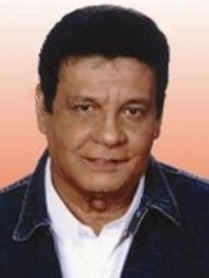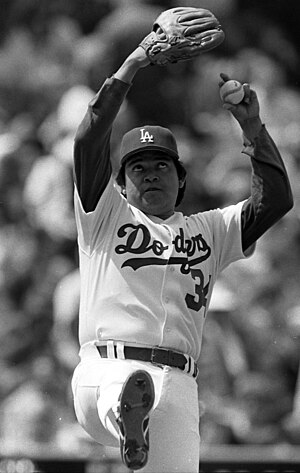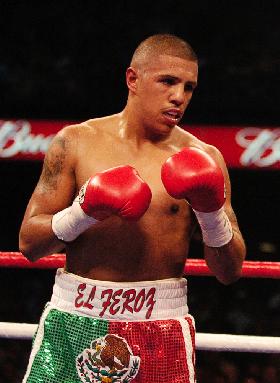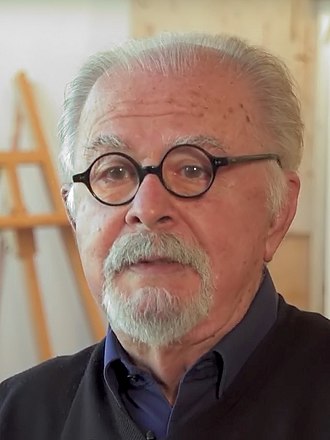Discover Your Roots
SIGN UPDiscover Your Roots
SIGN UPFernando is a male name of Spanish origin, meaning "Daring, Adventurous." It is a common given name and surname in Spain, Portugal, Italy, France, Switzerland, and former Spanish or Portuguese colonies in Latin America, Africa, and Asia. The name is equivalent to the Germanic given name Ferdinand, with an original meaning of "adventurous, bold journey." Famous bearers of the name include Fernando Alonso, a Spanish Formula One driver, and Fernando Botero, a renowned Colombian artist. In addition, the name has historical significance, as it was borne by Fernando el Católico, the king of Aragon. The name Fernando embodies a spirit of bravery and a willingness to embark on bold journeys, reflecting the adventurous nature of its meaning.

Fernando José Torres Sanz, also known as Fernando Torres, is a renowned Spanish football manager and former player. Born on March 20, 1984, he gained fame for his prolific goalscoring and remarkable pace during his playing career as a striker. Torres started his professional journey with Atlético Madrid, making a significant impact with 75 goals in 174 La Liga appearances. He then moved to Premier League club Liverpool, setting a record as the fastest player in Liverpool's history to score 50 league goals. Subsequently, he joined Chelsea for a Premier League record transfer fee of £50 million, achieving significant success with the club, including winning the FA Cup, UEFA Champions League, and UEFA Europa League. Torres also had a brief stint at AC Milan before returning to Atlético Madrid, where he further solidified his legacy by winning the 2017-18 UEFA Europa League.On the international stage, Torres represented Spain with distinction, amassing 110 caps and becoming the country's third-highest top goalscorer with 38 goals. He played a pivotal role in Spain's victories in major tournaments, including UEFA Euro 2008, 2010 FIFA World Cup, and Euro 2012, and was honored with the Golden Boot for his exceptional goal-scoring prowess during the 2012 tournament.Torres' football journey began at a young age, showcasing his talent and passion for the sport. He honed his skills at Atlético Madrid, where he

Fernando Poe Jr., also known as FPJ, was a prominent Filipino actor, film director, producer, screenwriter, and politician. His remarkable career in the film industry earned him the moniker "Da King," reflecting his status as the "King of Philippine movies." Poe starred in approximately 300 films from 1955 to 2003, showcasing his prowess as an action star and his commitment to portraying characters who championed the cause of the underprivileged. He also ventured into directing, producing, and writing, using pseudonyms such as Ronwaldo Reyes and D'Lanor for his creative works. Poe's notable films include "Only the Brave Know Hell" (1965), "Bato sa Buhangin" (1976), "Ang Panday" (1980), and "Ang Probinsyano" (1996). His immense talent and dedication to his craft were recognized with numerous accolades, including five FAMAS Awards for Best Actor and two for Best Director. In addition to his contributions to the film industry, Poe made a significant impact in Philippine politics, running for the presidency in 2004. Despite his untimely passing in the same year, his legacy continues to inspire and resonate with countless individuals. Poe's influence extended beyond his professional endeavors, as he was married to actress Susan Roces and is the father of Senator Grace Poe and actress Lovi Poe. His enduring impact on Filipino cinema and society remains an indelible

Fernando Valenzuela Anguamea, also known as "El Toro," was a prominent Mexican professional baseball pitcher who left an indelible mark on Major League Baseball (MLB). He played 17 seasons in the MLB, notably with the Los Angeles Dodgers, where he became a sensation during the "Fernandomania" era in 1981. Valenzuela's unorthodox windup and mastery of the screwball set him apart, leading to a remarkable breakout year where he won both the Cy Young and Rookie of the Year awards, a feat that remains unmatched. His peak years from 1981 to 1986 saw him as a consistent National League All-Star and a formidable pitcher, even excelling as a hitter. Valenzuela's career also included stints with other MLB teams before returning to the Dodgers as a broadcaster. His legacy boasts impressive achievements, including a career record of 173–153 and the highest wins above replacement (WAR) of any Mexican-born MLB player. Despite battling shoulder problems, he contributed to the Dodgers' 1988 World Series championship. Valenzuela's impact on the game and the Mexican community earned him enduring respect and recognition, with the Dodgers retiring his jersey number in 2023. Off the field, he was known for his humble beginnings, born in a small town in Sonora, Mexico, to a family of farmers. Valenzuela's journey from a tight-knit farming community to becoming a baseball icon

Fernando Javier Vargas, born on December 7, 1977, is a former American professional boxer known for his intense rivalries with Felix Trinidad, Oscar De La Hoya, Shane Mosley, and Ricardo Mayorga. As an amateur, Vargas achieved remarkable success, winning numerous championships and medals, including a bronze at the 1995 Pan American Games and representing the U.S. at the 1996 Olympics. Turning professional in 1997, Vargas quickly rose to prominence, winning his first world title in 1998 and successfully defending it throughout 1999. However, legal troubles and a positive drug test for the banned steroid stanozolol temporarily halted his career. Despite these challenges, he made a successful comeback and remained a popular figure in the boxing world. Vargas is widely recognized for his aggressive style in the ring and his accessibility and popularity with fans, often seen signing autographs. His impact on the boxing world and his enduring resilience make him an iconic figure in the sport's history.

Fernando Botero Angulo (19 April 1932 – 15 September 2023) was a renowned Colombian figurative artist and sculptor, celebrated for his distinctive style known as "Boterismo." His art, characterized by exaggerated volumes and figures, often conveys political criticism or humor. Botero gained international recognition and became the most quoted artist from Latin America during his lifetime. His artwork adorns prominent locations worldwide, including Park Avenue in New York City and the Champs-Élysées in Paris. Notably, he won the first prize at the Salón de Artistas Colombianos in 1958 and later gained acclaim for his sculptures after relocating to Paris in 1973. Botero's art is featured in prestigious international museums, corporate collections, and private holdings, with some pieces fetching millions of dollars. In 2012, he was honored with the International Sculpture Center's Lifetime Achievement in Contemporary Sculpture Award. Botero's early life was marked by financial struggles, but his determination and talent led to his first exhibition in 1948. He subsequently traveled to Europe, studying and refining his craft, ultimately achieving global acclaim for his extraordinary artistic contributions.
All images displayed on this page are sourced from Wikipedia or Wikimedia Commons.We use these images under their respective Creative Commons or public domain licenses. Wherever applicable, author attributions and license information are provided. If you believe an image is used incorrectly or outside its license terms, please contact us so that we can review and correct the issue.